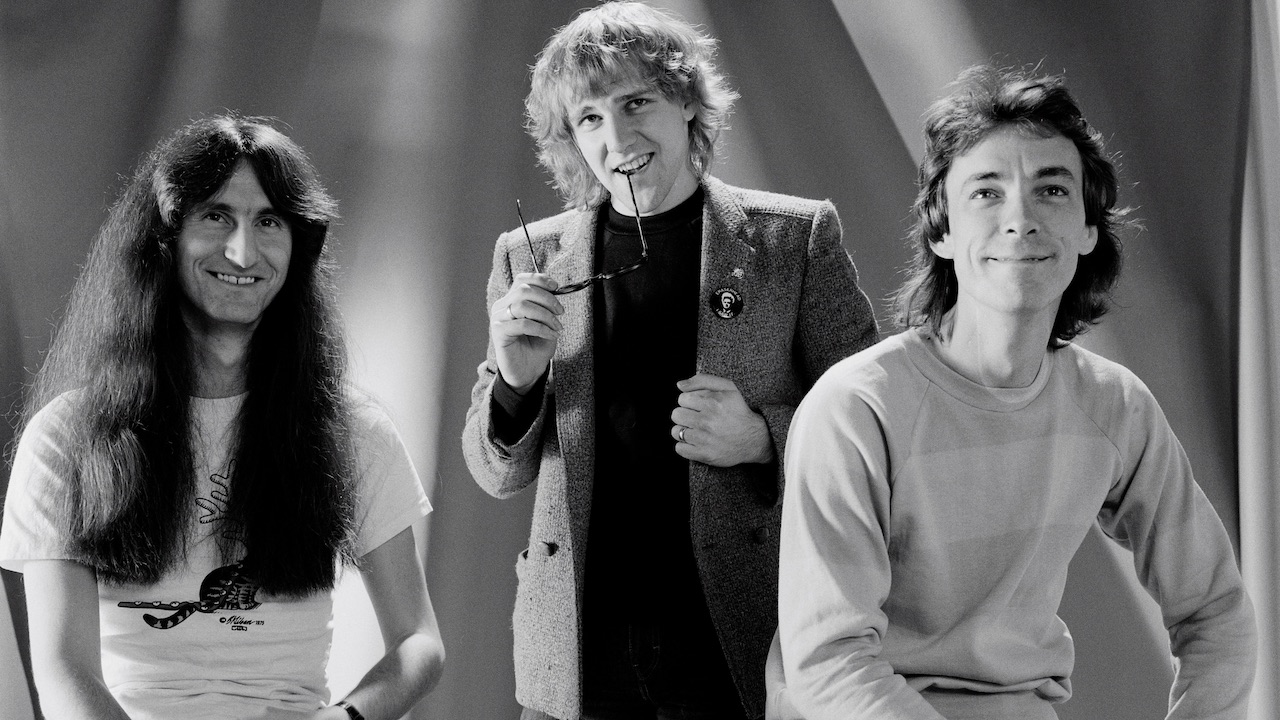True Rush fans know that there's a lot more to the Canadian trio than meets the eye. It's always been easy to pigeonhole the trio as cerebral, geeky nerds, and that's not a wholly unfair characterisation, but there's always been a mischievous, irreverent side to the band too which was often missed by those uninterested in scratching below the surface.
As an example, there was The Bag, a paper laundry bag with a silly face drawn on it which guitarist Alex Lifeson used to don on tour when he felt like stirring up a little mayhem, 'anonymously'. There was also Lifeson's penchant for glueing hotel room furniture to the ceiling, making unsuspecting victims feel like they were standing in an upside down room. Or the times that, in tribute to 1950's US TV sitcom Leave It To Beaver, he and Geddy Lee would turn up to parties with Lifeson wearing a smoking jacket and cravat, and Lee wearing a frilly nightdress and high heels. But these little idiosyncratic details didn't often make it into media coverage of the band.
"We're pretty insular," Lifeson admitted to a writer from Music UK magazine in 1983. "The organisation is very close, all the people that work for us are friends, so we have our own world on the road, and it keeps us sane."
"We're not a wild band," he added, '[but] we went through a phase like that when we first started out and everything was exciting, we had more time. But work's work and you lose interest in smashing up hotel rooms and going absolutely crazy, but there's still the odd night when everyone does. With some people it's something to do with some kind of image they're trying to convey: for us it really was moments of frustration... there's days when there's a full moon and you feel a little crazy."
In the same interview, Lifeson touched on the band's relationship with the media, specifically English music magazines, stating, "It was always difficult to get the press on our side."
"In the beginning we were labelled as just a lousy Led Zeppelin copy - screeching vocals - and that really stuck with us for a few years," he admitted. "But we kept playing and touring and became much closer with our audience and that's the sort of relationship that we have."
"The press was never important," he continued. "It didn't matter if we had singles or not, we could still play for the people we wanted to play for, and it just grew that way. Eventually the press had to take notice of us, take us a little more seriously. I guess any band will tell you that they've had a hard time with the press. You get a few lousy reviews or album critiques, and of course you could say that the press has put you down. I think generally we've had more bad press than good press, but in certain ways, I think that weighs in our favour..."

